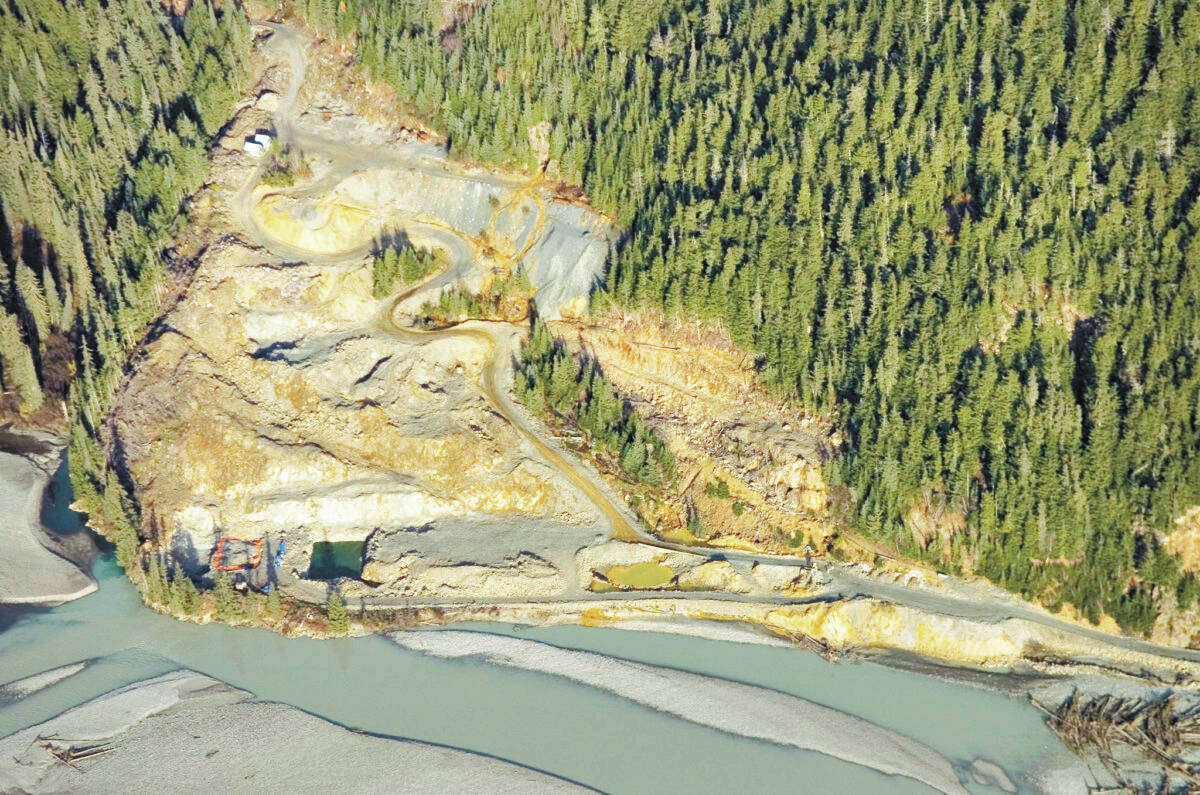At a transboundary mining forum held in Juneau on March 7, both Alaska and British Columbia officials expressed their strong commitment to cleaning up the abandoned and polluting Tulsequah Chief mine. However, these verbal commitments were short on details. And we all know that actions speak louder than words.
So, if there is a consensus on both sides of the border that the infamous Tulsequah Chief mine’s toxic acidic discharge into the Taku watershed is unacceptable, why does it continue?
The Tulsequah Chief was abandoned in 1957 without any remediation. Two companies have gone bankrupt trying to re-open the mine. In 2015 B.C. Mines Minister Bill Bennett came to Juneau and promised the mess would be cleaned up. Yet, eight years later the pollution continues. B.C. has developed a draft reclamation plan and conducted three seasons of preparatory site work. However, it is still unclear when and how the draft plan will be finalized, how cleanup would be paid for, when real cleanup would start, what the schedule of work will be, and how Alaskans will be involved.
Alaska Department of Environmental Conservation Commissioner Jason Brune told the forum “we are constantly pushing, and the timeline for that historic mine to be cleaned up can’t be soon enough.” Alaskans agree and appreciate this statement, but are also frustrated by the slow pace of cleanup and a lack of effective pressure for more action from our side of the border. The state of Alaska could and should be doing more, such as:
— Be less deferential to B.C.: Commissioner Brune praised B.C. for doing everything realistically possible in terms of Tulsequah cleanup. We respectfully disagree with his assertion. While B.C. has taken some preliminary steps toward remediation, there is good reason for impatience and concern that relatively little is happening as the degradation of the transboundary region’s top salmon system continues. State of Alaska needs to ask some hard questions, obtain specific commitments and challenge B.C. to do more, and not just accept the status quo.
— Ensure a seat at table for Alaskans: Both B.C. and Alaskan officials have emphasized their productive relationship via an MOU and 3-4 a year Bilateral Work Group meetings. Neither of these gives Alaska Tribes, fishermen, local governments and citizens a way to participate. The Work Group is only Alaska and B.C. government officials and there are no minutes available. The latest summary available is from February 2021.
— Do More to Hold B.C. Accountable: Last October I met with several B.C. officials. It was encouraging to hear that by Spring 2023 B.C. would have a plan for how the draft cleanup plan would be finalized and this would have opportunities for Alaskans to participate and that real cleanup would start in 2024. However, when I and representatives from commercial fishing groups recently met with B.C. officials after the forum we were told there is no available process to share as to how the cleanup plan would be finalized, there were no plans to engage Alaskans in this and B.C. was unsure when preparatory activities would be done and when real cleanup would start. Alaska needs to do more to hold B.C. accountable to its commitments and responsibilities as our upstream neighbor.
— Develop a concerted Alaska/US approach: In reference to suggestions that federal level engagement would help spur action on Tulsequah Chief, Brune was dismissive, saying he’s “a big fan of the state having control over our processes.” In this case, however, the state has no control over the process, which is being controlled by B.C. If the Commissioner truly believes cleanup can’t come soon enough, federal level involvement should be welcomed to demonstrate a united front of Alaska and the US government. The upcoming US/Canada bilateral talks would be an excellent opportunity for this.
B.C. officials at the forum talked about the need to build cross-border trust. Promptly cleaning up the Tulsequah Chief will be a necessary part of that process.
• Chris Zimmer is the Alaska Campaign Director for Rivers Without Borders in Juneau. He has been working for over 20 years with Alaska Native Tribes, fishermen, local governments and citizens to stop the threat of the Tulsequah Chief mine. Columns, My Turns and Letters to the Editor represent the view of the author, not the view of the Juneau Empire. Have something to say? Here’s how to submit a My Turn or letter. Columns, My Turns and Letters to the Editor represent the view of the author, not the view of the Juneau Empire. Have something to say? Here’s how to submit a My Turn or letter.

